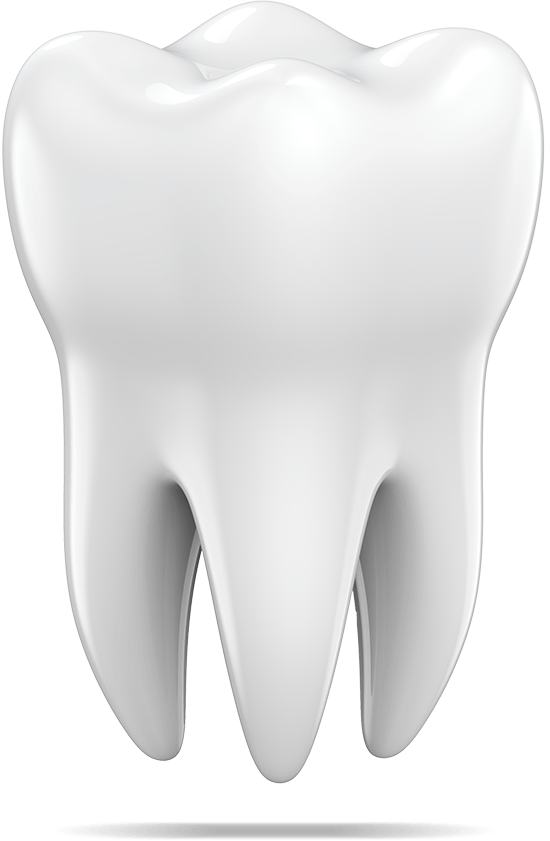
The Mistake
Some parents might delay the removal of wisdom teeth, thinking that as long as they aren’t causing immediate pain, they aren’t an issue.
The Danger
Wisdom teeth developing under the gums often do not have room to move into a usable position and frequently grow at an angle. As the roots develop, they extend deeper into the jaw and closer to the nerve that supplies feeling to the front lip and can impinge on this nerve. Once these teeth are fully formed, they often cause problems such as crowding, decay, periodontal disease, form cysts, or damage to adjacent teeth. Removing these teeth at the point they become a problem, and once they have fully formed, the chance of the nerve being damaged increases.
What to Do Instead
Ensure an early examination by a dentist experienced with wisdom teeth removal to monitor their development. Even if the teeth aren’t causing pain, they can still lead to complications. Some patients may have a few or all their wisdom teeth missing or have room to develop ideally into occlusion. However, the percentage of people for whom this is true is low. Only a complete examination by an experienced dentist can determine this.
The Mistake
Take only the advice of a dentist not experienced with wisdom tooth removal. Not all dentists are experienced with the complications of removal or delayed treatment.
The Danger
Without an examination by an experienced dentist, your child is exposed to the possibility of those complications later. Some wisdom teeth can be managed without surgery if they aren’t causing problems. However, in most instances, delaying treatment increases the chances of complications.
What to Do Instead
Seek a second opinion from an experienced dentist, which includes an advanced radiographic evaluation with a 3D image, such as a CBCT, to determine your child’s risk and explore all available options.
The Mistake
Parents might delay having their child’s wisdom teeth examined because of their child’s young age, waiting until a child is a young adult or has developed symptoms.
The Danger
Unfortunately, this often puts their child at risk. Waiting until the teeth have fully developed usually increases the chances of sinus perforation and nerve damage. There is an ideal time in development when removing wisdom teeth has the lowest risk. Removing them too late often puts your child at risk.
What to Do Instead
Timing is crucial. It’s often best to remove wisdom teeth during the early to late teens when the roots are not fully developed, reducing the risk of complications and improving recovery. Timing should be based on individual evaluation by an experienced dental professional. Some children require their wisdom teeth removed as early as 12 years, and others are well into their adult years before wisdom teeth removal is appropriate.
The Mistake
Focusing solely on the potential benefits of removing wisdom teeth without considering ways to reduce complications.
The Danger
If the removal of your child’s wisdom teeth is recommended, there are common complications that can be minimized. One of those complications is the development of alveolar osteitis or “dry socket.” Studies report that 30% of impacted mandibular wisdom teeth will develop dry sockets after removal. Platelet-rich fibrin (PRF) has been shown to nearly eliminate the incidence of dry sockets, reduce pain and swelling, and decrease healing time. However, very few surgeons implement this technique.
What to Do Instead
Discuss ways to minimize complications, especially using PRF, with your dental surgeon. PRF is made from a small sample of the patient’s blood, spun in a centrifuge to create a clot, and placed in the extraction site. It contains platelets, white blood cells, and fibrin and is rich in growth factors that stimulate the body’s natural healing processes.
The doctors at New Smiles have used PRF for over a thousand cases, virtually eliminating the incidence of dry sockets. Dr. Doyel developed a technique of collecting PRF during IV cannulation for sedation during wisdom tooth removal so there is only one venous access. This and other complication-reducing techniques can be discussed during your child’s consultation.
The Mistake
You are failing to follow through with all the proper recommended post-operative care.
The Danger
This can lead to more complications, such as infections, increased swelling, or prolonged pain.
What to Do Instead
Ensure you understand and follow all post-operative care instructions the dental team provides. This includes but is not limited to managing pain, taking prescribed medications, applying ice as directed, attending follow-up appointments, avoiding overexertion, getting the recommended rest, maintaining proper oral hygiene, avoiding hard, crunchy, or chewy foods, avoiding suction, such as sucking through straws or vigorous rinsing.

Most patients having their Wisdom Teeth removed have some level of anxiety. At New Smiles we understand this and for that reason, we offer and recommend Moderate IV Sedation to ensure our patient’s comfort during the procedure.
Administered intravenously, this type of dental anesthesia puts patients into a sleep-like or twilight sleep state during their procedure. Often our patients are given oral medication as well, in-office prior to their appointment, to help reduce anxiety. We also offer Nitrous Oxide as another relaxing option. With amnesic effects, many patients who receive IV sedation may forget parts of their care or the entirety of their treatment. To ensure safety and comfort of each patient, the doctor and at least one assistant always remain with the patient during the procedure.
IV sedation is an ideal choice to ensure an anxiety-free experience, especially for wisdom teeth removal. With some lasting effects, patients will need someone to drive them home and be with them after their visit. Our New Smiles team will go over post-operative instructions with both the patient and their care-giver and answer any questions our patients may have.
Click HERE to learn more about our Sedation options.


We understand that wisdom teeth extractions, or 3rd molars, can be the first surgery our patients ever receive. As a result, we do everything possible to make you feel at ease from a welcoming and friendly environment to calming anesthesia services. Before we determine if your wisdom teeth need removal, we capture precise, 3D scans of your mouth in order to assess the location and angle of your wisdom teeth. Using this imaging, we precisely plan your treatment so on the day of surgery, treatment will be efficient and minimally invasive.
Before surgery begins, we’ll provide one or a combination of anesthesia services to ensure you’re relaxed and pain-free throughout your stay. You’ll be able to return home the same day and typically only need over-the-counter medication to control any swelling or discomfort during your recovery. We’ll review post-operative instructions with you and encourage you to follow them closely for a shortened recovery time.
If you have any questions as you heal, please reach out to our surgical team in Sherwood, OR for the answers you need. With specialized surgical and medical training, we offer worry-free and confident care for any wisdom tooth extraction. Find out if it’s time for yours.
